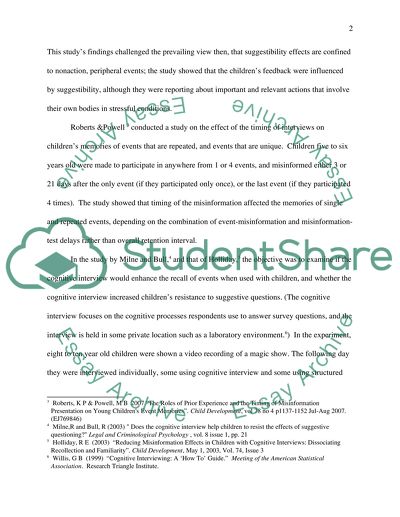Cite this document
(“Interview methods for children as eyewitnesses Essay”, n.d.)
Retrieved from https://studentshare.org/english/1415643-interview-methods-for-children-as-eyewitnesses
Retrieved from https://studentshare.org/english/1415643-interview-methods-for-children-as-eyewitnesses
(Interview Methods for Children As Eyewitnesses Essay)
https://studentshare.org/english/1415643-interview-methods-for-children-as-eyewitnesses.
https://studentshare.org/english/1415643-interview-methods-for-children-as-eyewitnesses.
“Interview Methods for Children As Eyewitnesses Essay”, n.d. https://studentshare.org/english/1415643-interview-methods-for-children-as-eyewitnesses.


